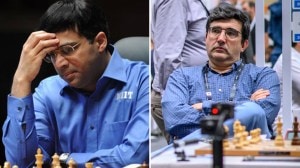Dont bother about Nobels,boost basic research: Venky
For a country eagerly waiting for its first home-grown Science Nobel laureate in decades,Venkataraman Ramakrishnan,who won the 2009 Nobel in Chemistry,has an important message
For a country eagerly waiting for its first home-grown Science Nobel laureate in decades,Venkataraman Ramakrishnan,who won the 2009 Nobel in Chemistry,has an important message: the scientific worth of a country cannot be measured by the number of Nobel winners alone.
And even if India did get one in the near future,he added,that wouldnt neccessarily mean Indian science was just fine.
Ramakrishnan was delivering a public lecture organised by the Department of Biotechnology at FICCIs auditorium in New Delhi.
During the question-and-answer session after the lecture,came the inevitable question from a young student: What can India do to produce more Nobel Prize winners?
I have been asked that question many times before,mainly from reporters, the Nobel laureate,who left India as a teenager,answered. Its not an easy question. Theres no magic formula for winning a Nobel Prize. Frankly,Nobel Prize is not the best or the only yardstick to judge the quality of scientific pursuit in a country. If someone from India wins one tomorrow that would not automatically mean that Indian science is okay.
So what should India do? Ramakrishnan did not elaborate,but indicated what he had in mind while responding to a question from another student,who wanted to know what the applications of his discovery of the structure and the function of ribosomes were by warning of the dangers of viewing a scientific pursuit solely from the prism of applications and stressing the need to promote basic research.
Scientists are often driven only by the motivation to find answers to fundamental questions in science,he said. The applications would follow even if they are not immediately apparent.
His own discovery,for example,in the future can hugely help the way antibiotics are designed,he said. He went on to cite several examples to underline that some of the most widely-used applications are actually the result of basic research. Uses of electricity,for instance,became evident only four or five decades after its discovery.


- 01
- 02
- 03
- 04
- 05





























